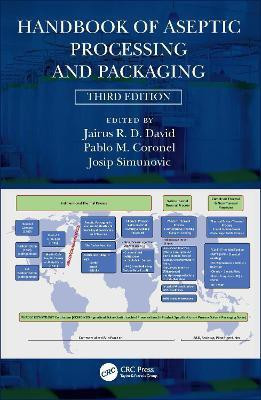Handbook of Aseptic Processing and Packaging(English, Hardcover, unknown)
Quick Overview
Product Price Comparison
Nine years have passed since the second edition of the Handbook of Aseptic Processing and Packaging was published. Significant changes have taken place in several aseptic processing and packaging areas. These include aseptic filling of plant-based beverages for non-refrigerated shelf-stable formats for longer shelf life and sustainable packaging along with cost of environmental benefits to leverage savings on energy and carbon footprint. In addition, insight into safe processing of particulates using two- and three-dimensional thermal processing followed by prompt cooling is provided. In the third edition, the editors have compiled contemporary topics with information synthesized from internationally recognized authorities in their fields. In addition to updated information, 12 new chapters have been added in this latest release with content on Design of the aseptic processing system and thermal processing Thermal process equipment and technology for heating and cooling Flow and residence time distribution (RTD) for homogeneous and heterogeneous fluids Thermal process and optimization of aseptic processing containing solid particulates Aseptic filling and packaging equipment for retail products and food service Design of facility, infrastructure, and utilities Cleaning and sanitization for aseptic processing and packaging operations Microbiology of aseptically processed and packaged products Risk-based analyses and methodologies Establishment of "validated state" for aseptic processing and packaging systems Quality and food safety management systems for aseptic and extended shelf life (ESL) manufacturing Computational and numerical models and simulations for aseptic processing Also, there are seven new appendices on original patents, examples of typical thermal process calculations, and particulate studies-single particle and multiple-type particles, and Food and Drug Administration (FDA) filing The three editors and 22 contributors to this volume have more than 250 years of combined experience encompassing manufacturing, innovation in processing and packaging, R&D, quality assurance, and compliance. Their insight provides a comprehensive update on this rapidly developing leading-edge technology for the food processing industry. The future of aseptic processing and packaging of foods and beverages will be driven by customer-facing convenience and taste, use of current and new premium clean label natural ingredients, use of multifactorial preservation or hurdle technology for maximizing product quality, and sustainable packaging with claims and messaging.


